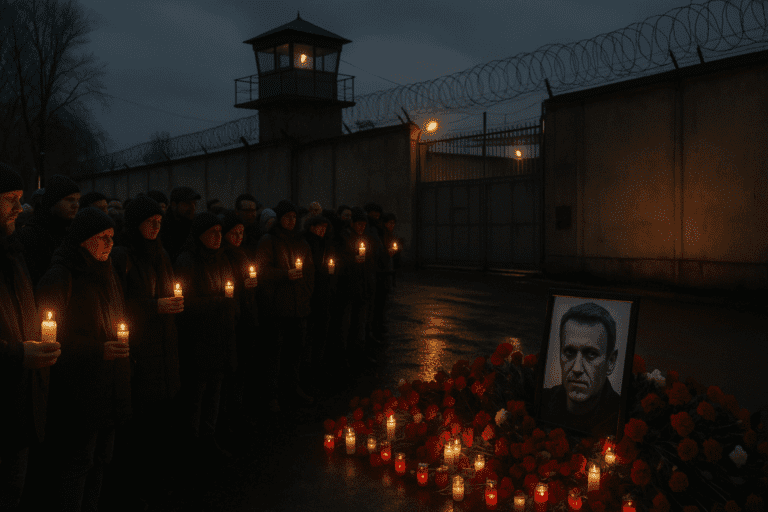Alexei Navalny, Russia’s most prominent opposition leader and outspoken anti-corruption activist, died unexpectedly in a Russian prison on February 16, 2024, at the age of 47. Navalny had been incarcerated since 2021 on charges widely regarded by international observers as politically motivated, aimed at suppressing his relentless challenge to President Vladimir Putin’s government. His sudden and mysterious death has sent shockwaves across Russia and around the world.
A History of Persecution and Suspicious Circumstances
Navalny was no stranger to danger. In 2020, he survived a poisoning attack believed to be orchestrated by Russian state agents—a grim testament to the risks faced by dissidents in Russia. Following his return to Russia from medical treatment abroad, he was arrested and sentenced to prison, sparking global condemnation. Despite previous assassination attempts and harsh imprisonment, Navalny remained a symbol of resistance to corruption and authoritarianism. His death has reignited fears over the Russian government’s harsh crackdown on political opposition and dissent.
Calls for Accountability and Government Denial
In the wake of Navalny’s death, supporters and human rights advocates worldwide have demanded an independent and transparent investigation. They seek to uncover the truth behind the circumstances leading to his demise and hold those responsible accountable. However, the Kremlin has rejected these demands, accusing foreign powers of meddling in Russia’s internal affairs. Russian officials insist that Navalny died of natural causes, but skepticism persists among the public and international community, who view his death as a possible act of political repression.
Domestic Unrest and Global Diplomatic Fallout
News of Navalny’s passing sparked widespread protests across Russia, with citizens demanding political reform, the release of other political prisoners, and an end to the government’s oppression of dissenting voices. These demonstrations underscore the deepening divide between Russia’s authoritarian regime and its people’s growing hunger for democratic freedoms. The incident has also further strained Russia’s already tense relations with Western nations, prompting calls for intensified sanctions and diplomatic pressure against Moscow.
Navalny’s Enduring Legacy and the Future of Russian Democracy
Alexei Navalny’s death represents a tragic and pivotal moment in Russia’s political struggle. As a fearless campaigner against corruption and authoritarianism, he inspired a generation of Russians committed to change. His untimely passing has the potential to galvanize opposition forces and invigorate calls for democratic reforms. At the same time, it highlights the perilous state of civil liberties in Russia and the ongoing erosion of political freedoms under Putin’s regime. The international community now faces the urgent challenge of supporting the Russian people’s aspirations for democracy while addressing the broader implications of this profound loss.


